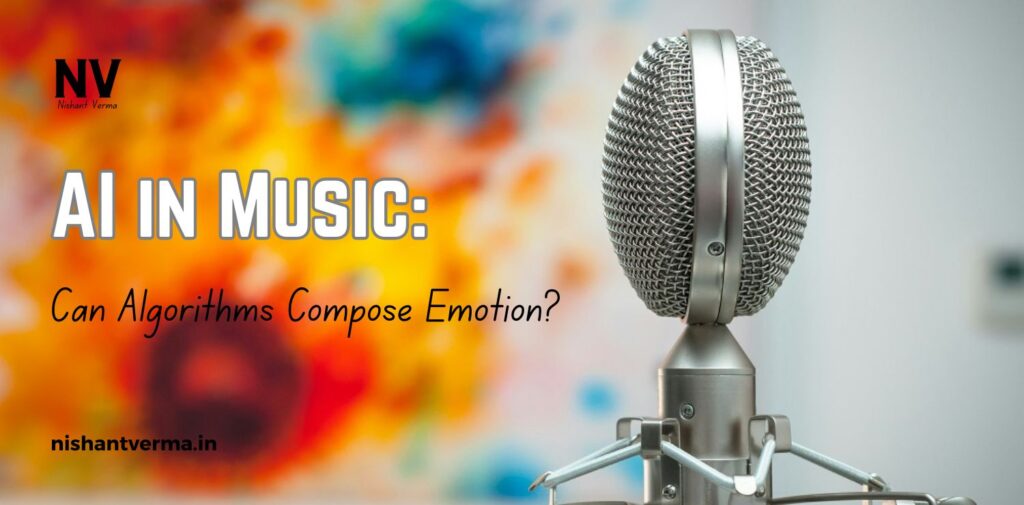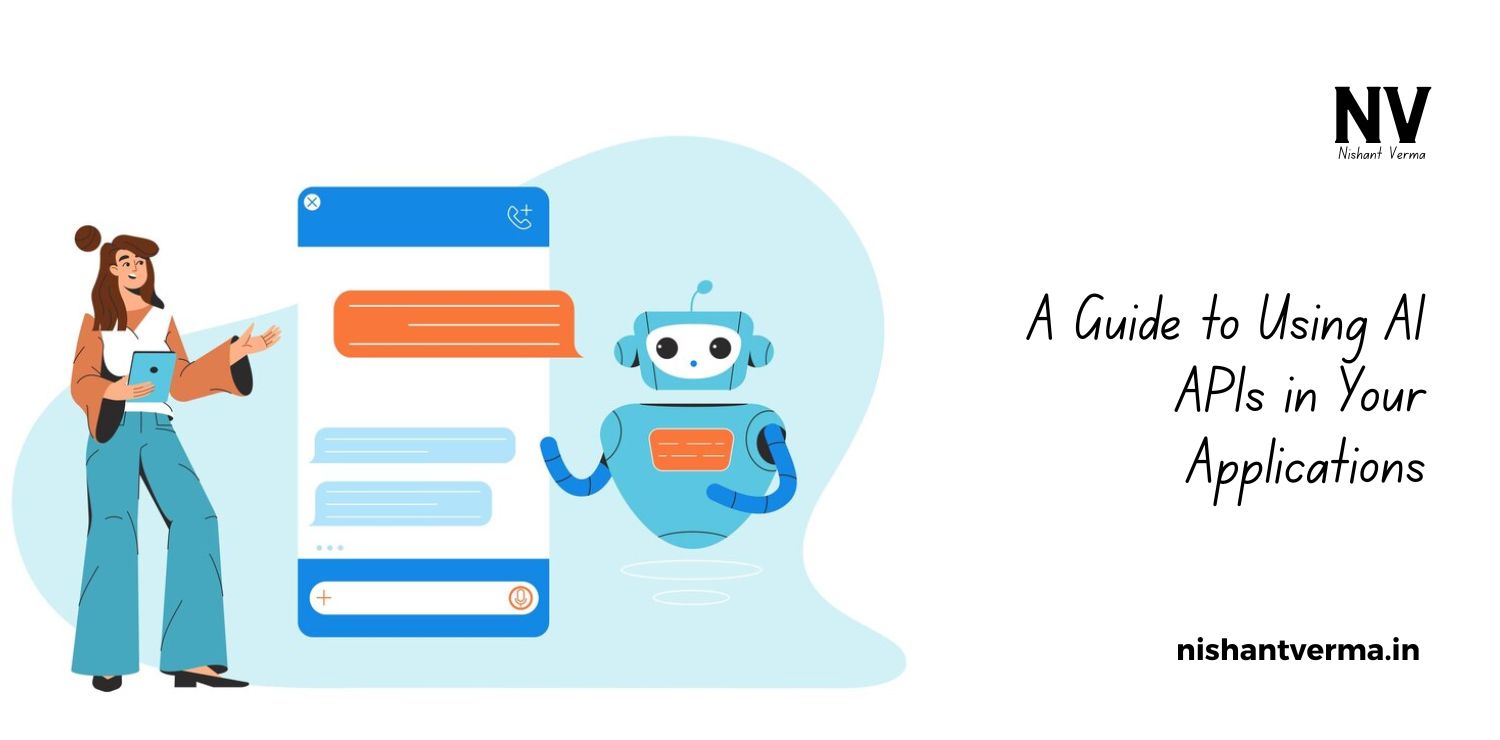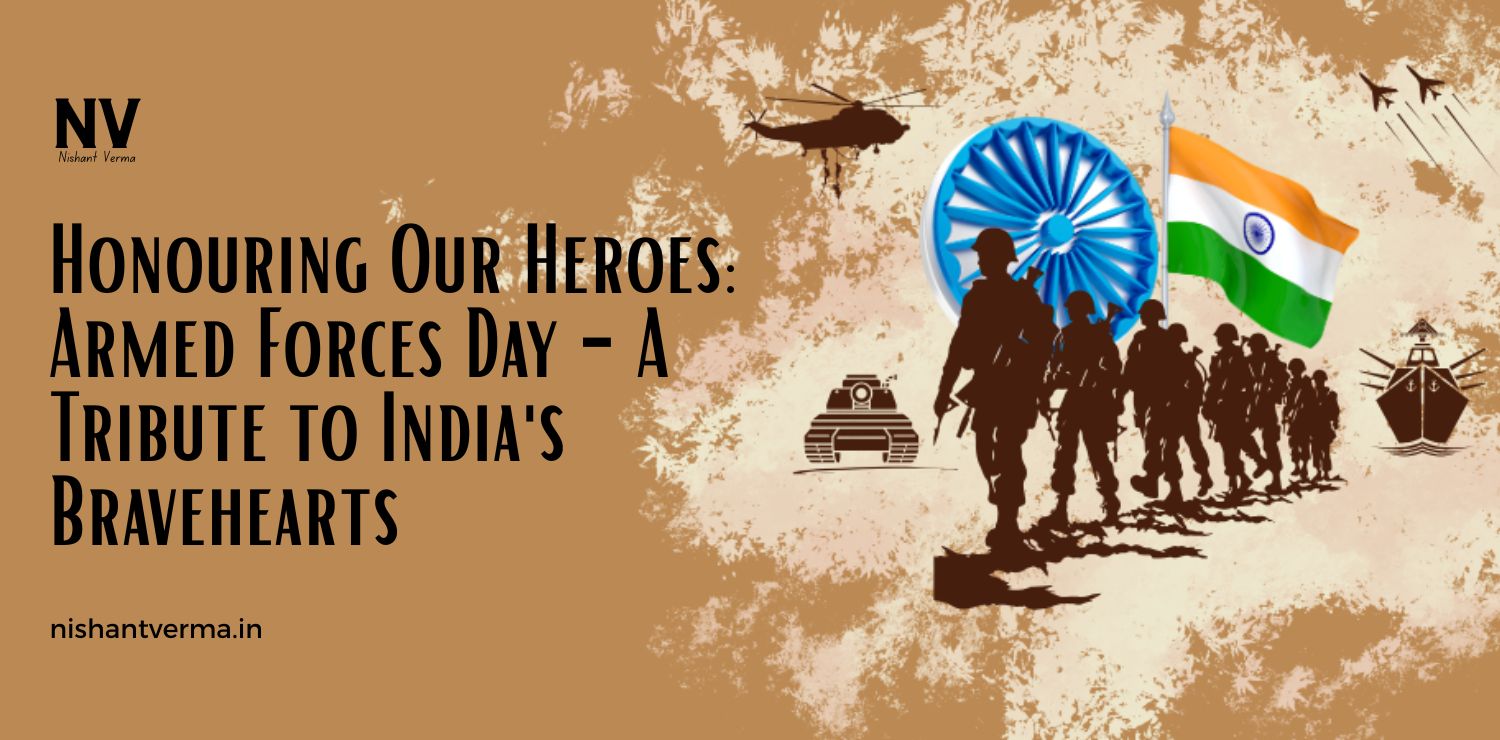Music has always been a beautiful way to express feelings and emotions. From the classical ragas of India to modern Bollywood songs, music connects with our hearts. But today, we are witnessing something new and unexpected — machines are learning to make music. Artificial Intelligence (AI), which is commonly known for working in areas like finance, healthcare, and technology, is now entering the world of melodies and rhythm. But the big question is – can a machine truly create emotional music like a human?
This article will explore how AI is changing the music industry, whether it can express human emotions, and what this means for musicians and listeners in India. We’ll keep it simple, easy to understand, and valuable for anyone interested in the future of music.
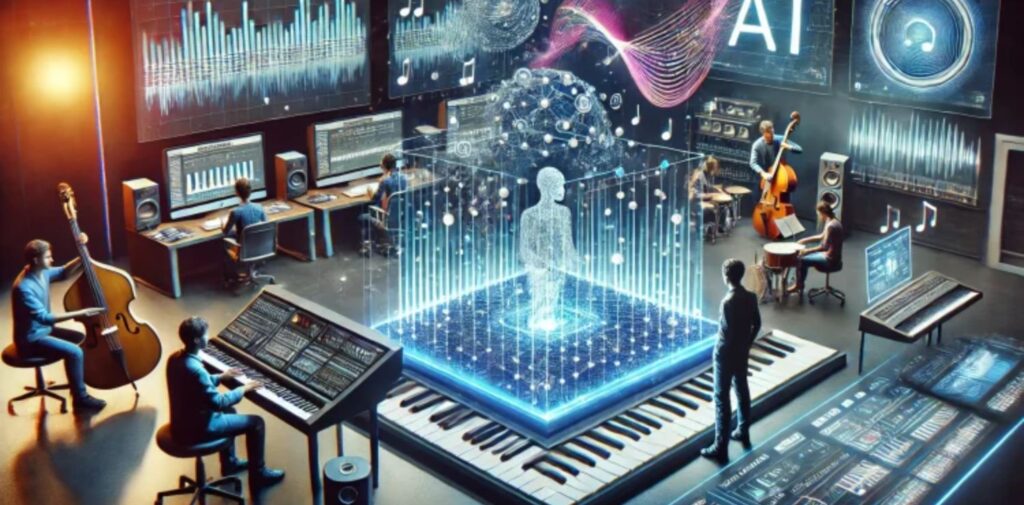
Understanding AI Music Composition
Before we go deeper, let’s understand what AI in music really means. Artificial Intelligence is a branch of computer science where machines are trained to learn from data, make decisions, and even create new things. In music, AI uses algorithms to study thousands of songs, learn musical patterns, and then create new compositions based on what it has learned.
There are many AI programs today that can compose music. Some of the popular ones are AIVA (Artificial Intelligence Virtual Artist), Amper Music, and Google’s Magenta project. These platforms can create background music, pop songs, classical pieces, and more — sometimes within just a few seconds.
How Does AI Learn Music?
AI doesn’t just start composing music out of thin air. It first needs to be trained. Think of it like how a student learns music — by listening, practicing, and following patterns. AI is given thousands or even millions of songs to listen to. These songs help the AI understand rhythm, melody, harmony, structure, and even emotions hidden in music.
For example, if AI is given Indian classical music, it can study the different ragas, the structure of a raag, how it begins slowly (aalap) and then builds into a faster tempo (jod and jhala). It can also study Bollywood songs to understand emotional expressions through lyrics and instruments.
After studying this data, AI can then create new music that is similar in style. Some AI tools even allow users to select the mood of the music – like happy, sad, romantic, or energetic – and the AI creates a tune that matches that emotion.
Can AI Really Feel Emotions?
This is the most interesting and debated question – can a machine, which doesn’t have a heart or feelings, truly understand and express emotions?
The truth is, AI does not “feel” emotions the way humans do. It doesn’t cry when it hears a sad song or feel excited during a festival song. But what it can do is recognize patterns that usually make people feel a certain way. For example, in Indian music, certain ragas are known to create specific moods – Raga Bhairavi for devotion, Raga Yaman for peace, or Raga Desh for romance. AI learns these associations and can reproduce them in its compositions.
So, AI may not feel the emotion, but it can learn how to create sounds that usually make humans feel something. This is both amazing and a little strange – a machine creating something that can touch your heart!

Impact on Indian Music Industry
India is a land of rich musical diversity – from Carnatic and Hindustani classical music to Punjabi pop, Bollywood hits, devotional songs, and indie music. The arrival of AI in music opens many exciting possibilities for our industry.
- Faster Music Production – With AI, composers can generate background scores, jingles, or even full songs in minutes. This saves a lot of time and money, especially for film and ad producers.
- Support for New Artists – AI tools are user-friendly and often don’t require deep musical knowledge. This allows young and new musicians from small towns and villages in India to create professional-sounding music using their creativity.
- Fusion of Traditional and Modern – AI can help preserve Indian classical music by blending it with modern styles. Imagine a machine learning Raag Darbari and combining it with a modern hip-hop beat!
- Customization for Listeners – In the future, listeners may be able to generate their own personalized songs through AI – for example, a romantic Tamil song with a sad mood and flute instrument – all made in seconds.
Challenges and Concerns
While AI in music has many benefits, it also raises important questions and challenges:
- Loss of Human Touch – Many musicians believe that true music comes from the soul. It involves personal pain, joy, love, and memories – things a machine cannot experience. AI-generated music may sound correct, but it may lack the “soul” that human-made music carries.
- Job Loss for Musicians – If AI becomes too advanced, some fear that human composers, background score creators, and session musicians might lose work. In a country like India, where many people earn their living through music, this is a real concern.
- Creativity vs. Copying – AI learns from existing songs. So, can it really be called “creative”? Or is it just remixing what already exists? Also, there are questions about copyright – if AI creates music based on old songs, who owns the rights?
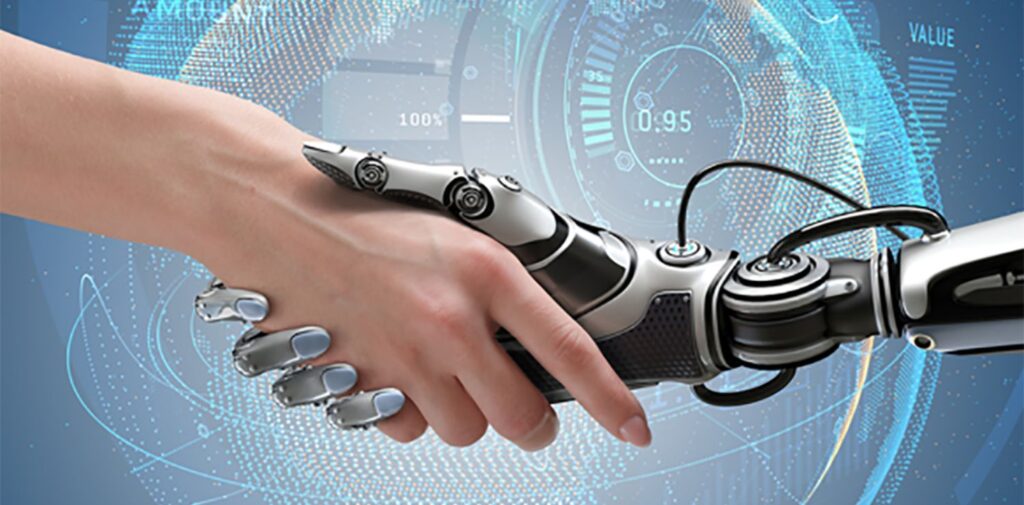
The Future: Man and Machine Together
Instead of replacing human musicians, the best future may be one where AI becomes a partner to human creativity. Just like a harmonium or tabla helps a singer, AI can help composers with ideas, backing tracks, or even creating variations of a tune. It can assist music teachers, help students practice, or allow film directors to quickly test different moods for a scene.
In India, where music is deeply emotional and culturally rich, AI should be used with respect and care. It can be a tool, but not a replacement for the human heart behind the music.
Final Thoughts
AI in music is an exciting journey into the future. While it may not have feelings, it can learn from emotional patterns and create music that moves people. For Indian music lovers and creators, this is a new chapter full of opportunities – to blend tradition with technology, to reach global audiences, and to make music more accessible to everyone.
At the end of the day, no matter how advanced AI becomes, the soul of music will always belong to the human heart. A machine may create the tune, but the emotion it brings out – that will always come from us.
So, next time you hear a beautiful tune, take a moment to wonder – was this made by a person, or a machine? And does it really matter, as long as it touches your heart?
Let the music play – human or AI – as long as it brings joy, emotion, and connection.

